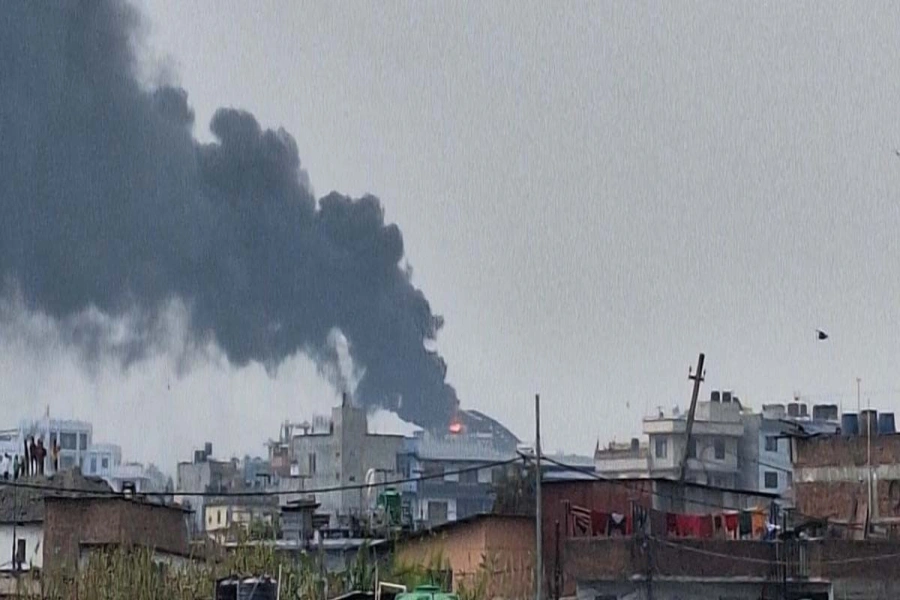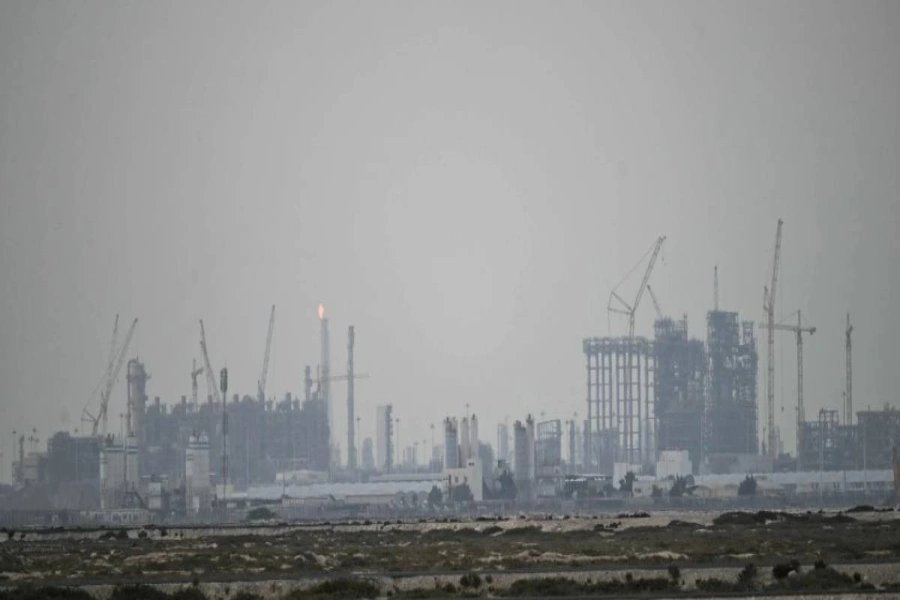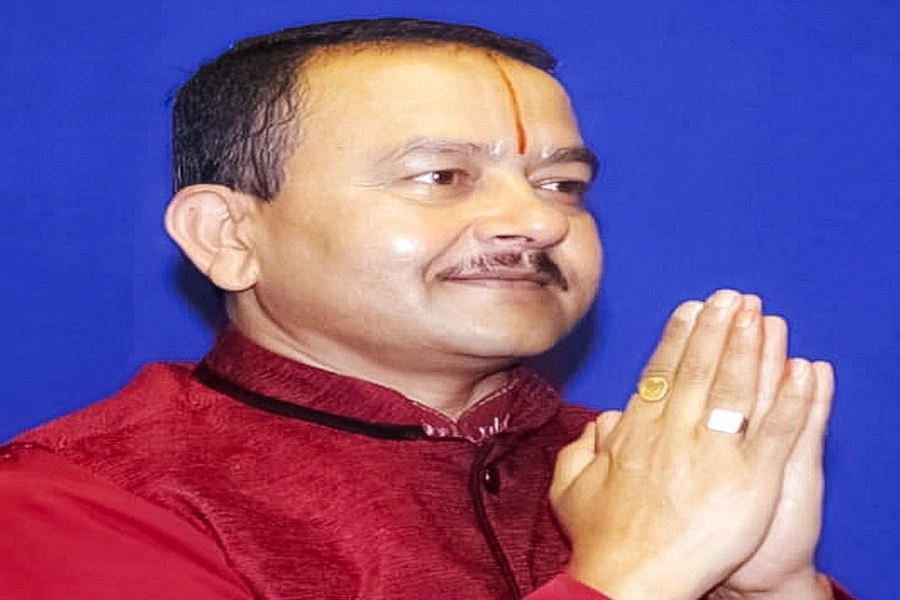Prime Minister Pushpa Kamal Dahal is going to India tomorrow on a four-day official visit. Both countries have already announced the visit officially. However, the visit, Dahal’s first foreign visit since assuming office last December, has sparked questions and concerns about the timing and appropriateness of the trip. While both governments emphasize the importance of cordial relations, a range of unresolved issues, most notably the territorial dispute, loom large between the two nations. This piece delves into the reasons why it may not be the ideal moment for Prime Minister Dahal's visit and underscores the urgent need for India to acknowledge and rectify its encroachment upon Nepali territories.
Nepal has long been embroiled in a territorial dispute with India, encompassing areas like Susta, Kalapani, Lipulekh, and Limpiyadhura. While the Susta issue dates back to the past, India's formal encroachment upon Kalapani, Lipulekh, and Limpiyadhura became evident in 2019 when India issued a new political and administrative map, asserting its claim over these Nepali territories. Nepal responded through its own revised map. This highlights the gravity of the matter. Nepal's stance is grounded in historical treaties, including the Treaty of Sugauli, and maps from that era, while India insists on newer maps. This disagreement undermines the amicable relations between the two nations and necessitates a diplomatic resolution.
Regrettably, Nepal's request for reciprocity from India for a diplomatic resolution to the problem has been disregarded thus far. India's encroachment upon Nepali territories cannot be overlooked, especially considering the strategic importance of these areas in relation to China. Nepal's historical reluctance to address the presence of an Indian army camp in Kalapani has inadvertently encouraged India's claims. During the early 1960s, King Mahendra, the visionary leader of Nepal, made a strategic decision to remove all Indian army camps located along Nepal's northern border with China. However, he allowed the presence of an Indian army camp in Kalapani, perhaps recognizing its significance in the region's geopolitical dynamics. Unfortunately, this decision has been taken advantage of, exemplifying the famous saying "you offer an inch and they take a mile." It is imperative to understand this historical context while addressing the current territorial dispute and finding a diplomatic resolution.
Considering the ongoing territorial dispute and India's lack of an appropriate response, it is reasonable to question the timing of Prime Minister Dahal's visit to India. India attacked Nepal’s sovereignty and territorial integrity by illegally occupying Kalapani, Lipulekh and Limpiyadhura and is adamant on not rectifying this grave injustice to its smaller neighbor. Therefore, every Nepali leader should make it clear that they would not visit India unless it rectifies its deliberate mistake of attacking Nepal’s territorial integrity. This is even truer about PM Dahal who once announced to wage a ‘tunnel war’ against Indian expansionism! However, if PM Dahal cannot avoid his compulsion to visit India, then he must go to New Delhi with a single agenda this time - freeing the Nepali territories which India has occupied illegally. If Prime Minister Dahal commits to addressing the issue directly with his Indian counterpart, asserting that Kalapani, Lipulekh, and Limpiyadhura belong to Nepal, and urges India to rectify its mistake, then the visit may have a purpose. However, if these crucial aspects are overlooked, it would be more prudent for Prime Minister Dahal to postpone or reconsider the visit.
Nepal, India officially announce PM Dahal's visit to India

The territorial dispute between Nepal and India, particularly concerning Kalapani, Lipulekh, and Limpiyadhura, demands attention and resolution. While the visit of Prime Minister Dahal to India signifies the continuation of high-level exchanges, it is essential to prioritize the unresolved dispute. Nepal should maintain a peaceful form of protest, seeking acknowledgment from India and refraining from fully supporting India on international platforms until the issue is addressed. Engaging in diplomatic talks remains crucial, but the timing of the visit should be reevaluated, emphasizing the need for India to rectify its encroachment and honor Nepal's territorial sovereignty. The historical context involving King Mahendra further highlights the complexities surrounding the territorial dispute and underscores the significance of finding a just and diplomatic resolution for the benefit of both nations.
King Mahendra’s critics say that he allowed the presence of the Indian army camp in Kalapani to win India’s support to the partyless Panchayat system which he introduced in 1960. They don’t see the fact that he removed nearly two dozen such Indian army camps from our motherland.
Notably, however, it’s been more than three decades since the Panchayat system was thrown away in Nepal and yet the successive governments and politicians in Nepal utterly failed to address the presence of the Indian army camp in Kalapani. Several governments have come and gone since the Panchayat era, yet none have mustered the courage to raise this issue with India in a meaningful way. The lack of action from the Nepali side has inadvertently given India the confidence to stake its claim over Nepali territories. The reluctance of politicians to confront this matter head-on has perpetuated the situation, allowing the Indian army camp to remain in Kalapani unchallenged. Clearly, all those who held the reins of the government in Nepal missed several opportunities to assert its sovereignty and rectify the encroachment. As a result, it becomes even more crucial for Nepal to reassess its diplomatic approach and take proactive steps towards resolving the territorial dispute.
They say it’s a tradition for every Nepali Prime Minister to visit India first, before any other country, after being elected to the post of Prime Minister. However, this is a tradition which India has never reciprocated, despite its claim to give ‘special importance to Nepal and its ‘Neighborhood First’ policy. This can be attributed to various factors. India is much bigger and much more powerful than Nepal which cannot afford to wage a war against India to reclaim its illegally occupied territories. This is the reality of the 21st century and we are not in the 18th century when Nepal fought with the then British India to protect its territories.
We all know that the power asymmetry between nations often shapes the dynamics of bilateral relations between them. Secondly, India's stance could be influenced by its strategic interests, particularly in relation to China, in the case of Kalapani, Lipulekh and Limpiyadhura. But it doesn’t solely seems to be guided by the China factor; it’s all about intentions. Because there is no presence of China in Susta where India has encroached upon a large swathe of Nepali land. The unresolved territorial dispute between Nepal and India, especially in areas like Susta, Kalapani, Lipulekh, and Limpiyadhura, further complicates the situation. Additionally, historical grievances, political considerations, and other bilateral issues can also play a role in India's decision not to reciprocate Nepal's tradition of visiting India after assuming the role of Prime Minister.
To sum up, let’s hope India will always remember and realize that it is nearly 22 times bigger than Nepal and it should not show its greed for a few hundred square kilometers of Nepali land. Plus, India should always remember that the Nepali youths have shed blood and sacrificed their lives to protect its territories.
Let’s hope India doesn’t miss any opportunity to return this greater favor. And PM Dahal, if he is desperate for a break from his hectic schedules back in the country - and wants to visit New Delhi, goes to India with a single agenda this time – to free the Nepali territories illegally occupied by India.
Let’s start doing first things first in Nepal-India relations!






-1200x560-1772467693.webp)





_20211006150830.jpg)
























